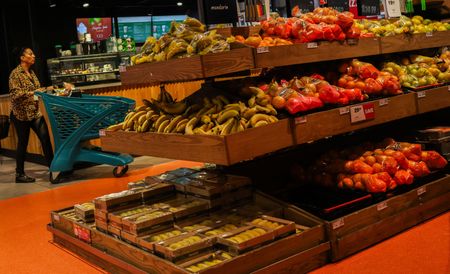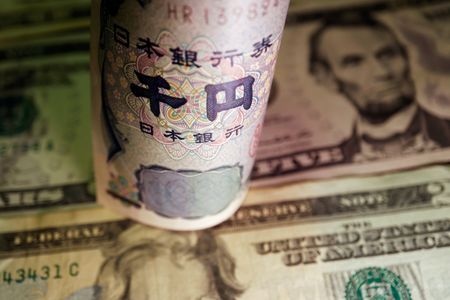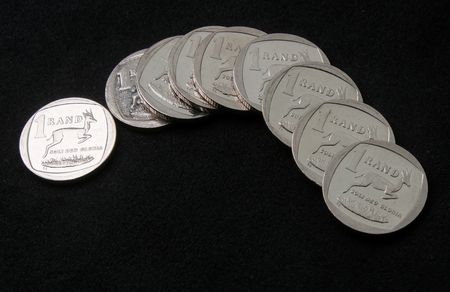By Kopano Gumbi and Sfundo Parakozov
PRETORIA (Reuters) -South Africa cut its inflation target to 3% on Wednesday, marking the first adjustment in 25 years, with Finance Minister Enoch Godongwana saying that over time this will lessen inflation expectations and create room for lower interest rates.
Godongwana announced the change to the target in a mid-year budget review, from South Africa’s previous range of 3%-6%, after central bank governor Lesetja Kganyago said in July that the bank would target the bottom of the band rather than the range.
The minister said the inflation target would immediately change to 3% with a 1 percentage point tolerance band either side.
But he said the new target would be implemented over two years, suggesting the central bank will be allowed some leeway in meeting the target initially and economic actors like businesses and trade unions could take time to adjust.
TOLERANCE BAND TO ACCOMMODATE SHOCKS
The tolerance band will provide flexibility to accommodate any unexpected inflationary shocks, the finance ministry and the central bank said in a joint statement.
The transition to the lower target would have to be carefully managed to ensure the government maintains its long-term fiscal consolidation goals, Godongwana said.
Kganyago has long advocated lowering the inflation target, arguing the band was uncompetitive and misaligned with international peers.
Standard Chartered’s head of research for Africa and the Middle East, Razia Khan, said the adjustment underscored the government’s commitment to reform and would allow the central bank room to ease interest rates at its next policy meeting next week.
The adjustment is expected to have mixed fiscal implications in the short term – it may curb economic growth and revenue collection, but also lower debt repayments.
RAND AND BONDS RALLY ON TARGET CHANGE
The rand extended gains against the dollar after the announcement.
South Africa’s longer-dated international bonds also rose, with the 2046 maturity up nearly 1 cent, Tradeweb data showed.
The budget review showed the Treasury forecast a slightly smaller consolidated budget deficit this fiscal year of 4.7% of gross domestic product (GDP), compared to May’s forecast of 4.8%.
South Africa’s debt to GDP ratio is seen stabilising at 77.9% this fiscal year, higher than the 77.4% estimated in May.
The Treasury’s economic growth estimates for this year and next have been revised down to 1.2% and 1.5%, from 1.4% and 1.6% respectively.
(Additional reporting by Colleen Goko in Pretoria and Wendell Roelf in Cape Town; Editing by Alexander Winning, Olivia Kumwenda-Mtambo and Alexander Smith)










